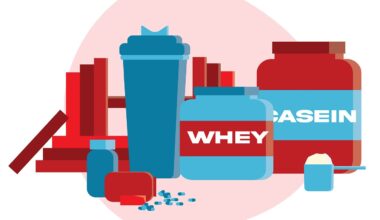Understanding the Need for Vitamin D While on a Keto Plan
Embarking on a keto diet can be a transformative experience for many, heavily influencing your lifestyle and health. One of the vitamins that can often be overlooked during this transition is vitamin D. This vital nutrient plays a significant role in various bodily functions, including calcium absorption, immune support, and mood regulation. It’s important for individuals adopting the keto lifestyle to prioritize their vitamin D intake. The keto diet focuses on high-fat and low-carb foods, and maintaining balance in these essential vitamins can often be a challenge. For those who may experience restrictions on certain food types, diversifying through supplementation or alternative sources becomes necessary. Sources of vitamin D are limited but include fatty fish, egg yolks, and fortified dairy products. However, these sources can sometimes fall short when striving for dietary ketosis. Therefore, considering a vitamin D supplement may be highly beneficial. Adequate levels of vitamin D may assist in maximizing the diet’s effectiveness. Prioritizing this nutrient can enhance your overall health, boost energy levels, and promote a sense of well-being while adhering to a ketogenic lifestyle.
Vitamin D deficiency is a common concern among individuals on various diets, including the keto diet. This deficiency can lead to multiple health issues, such as weakened bones and increased susceptibility to infections. Often, people on a ketogenic diet may limit their intake of carbohydrate-rich foods, which can also reduce their exposure to foods high in vitamin D. Therefore, it’s vital to regularly monitor your levels of this crucial vitamin to avoid potential health complications. Numerous studies have suggested a correlation between low levels of vitamin D and increased health risks. This is particularly crucial for those adhering to the low-carb lifestyle, as the reliance on animal products may not always provide sufficient nutrient diversity. Symptoms of vitamin D deficiency can range from fatigue to muscle weakness, both of which could impair your ability to stay active and feel your best on a keto regimen. It’s advisable to consult with a healthcare provider to evaluate your levels if you suspect you are lacking this essential vitamin. Supplementation or lifestyle changes, such as increased sun exposure, can significantly improve your vitamin D status and maintain health during keto adherence.
Sources of Vitamin D for Keto Dieters
Individuals following a keto dietary plan should pay special attention to the sources of vitamin D they incorporate into their meals. While some food options can be limited in a keto lifestyle, several key sources of vitamin D can still be consumed to meet daily recommendations. Fatty fish, such as salmon, mackerel, and sardines, are excellent options. These foods not only provide a rich source of fat but also deliver essential vitamin D that boosts absorption. Additionally, cod liver oil is another nutrient-dense source that can be considered for those on the keto journey. Beyond fish, fortified almond and coconut milk can serve as alternatives to provide essential nutrients. Furthermore, while egg yolks offer some vitamin D naturally, it’s important to include a variety of sources in your diet to optimize intake. Utilizing mushrooms that have been exposed to sunlight can serve as a plant-based option for vitamin D, enhancing variety in meal planning. Consistent inclusion of these sources can empower your nutritional strategy and maintain sufficient vitamin D levels while on a keto diet.
Sun exposure is an additional natural source of vitamin D that people can take advantage of while on a keto diet. The skin synthesizes vitamin D when exposed to sunlight, particularly UVB rays. As a result, it is recommended that individuals try to spend time outdoors regularly, especially with adequate skin exposure, for optimal vitamin D synthesis. However, even with sun exposure, many people still struggle to achieve adequate levels of this important vitamin, particularly in winter months or in regions with limited sunlight. When natural sun exposure is insufficient, dietary adjustments or supplements become even more vital. Moreover, it’s essential to consider factors such as skin tone, geographic location, and lifestyle habits, as these can all impact how well an individual can produce vitamin D. For many, a combination of sun exposure, dietary sources, and supplemental options may be the best overall strategy to ensure optimal intake. Ensure to monitor your vitamin D levels through blood tests to maintain proper health while on a keto plan, thus empowering the positive benefits of low-carb living.
The Role of Vitamin D in Keto Success
Understanding the role of vitamin D in your health can lay the groundwork for successful adherence to a keto lifestyle. Many people who struggle with energy levels or mood fluctuations may benefit from proper vitamin D intake. This vitamin contributes to regulation in the body, from metabolism to immune function, and can profoundly affect overall well-being. A successful ketogenic diet aims to promote healthy weight loss and enhanced mental clarity. However, without adequate vitamin D, these intended benefits may be undermined. Research suggests that those with optimal vitamin D levels are more likely to experience positive outcomes and maintain their dietary goals. Without sufficient vitamin D, individuals can feel fatigued and unmotivated, which can significantly impair progress on their keto journey. Moreover, vitamin D is known to be linked to calcium metabolism; a deficiency can interfere with bone health, which is critical for anyone, especially in high-fat dietary transitions. Therefore, recognizing how this essential nutrient influences the body’s response to dietary changes can significantly enhance your keto experience and success.
Integrating vitamin D into your keto regimen can involve strategic planning and a proactive approach. Many supplements are available to help individuals achieve their daily vitamin D intake efficiently and effectively. Common options include vitamin D3, which is often recommended due to its superior bioavailability compared to other forms. Incorporating supplementation can complement dietary sources, ensuring sufficient levels while adhering to the keto diet. Consulting with a healthcare professional can provide guidance on choosing the right type of vitamin D supplement based on personal health needs. The dosage may vary depending on individual factors, such as lifestyle and existing deficiencies. Additionally, consistency is key; supplements should ideally be taken regularly to elicit the desired benefits continually. As a personalized approach to dietary health, maintaining a delivered level of vitamin D promotes overall well-being and synergizes with the effects of a keto diet. By prioritizing this aspect of nutrition, you can harness the full spectrum of benefits, positioning yourself on the path toward optimal health and wellness.
Final Thoughts on Vitamin D and Keto
In summary, navigating a keto diet while ensuring adequate vitamin D intake is paramount for maintaining optimal health and well-being. This vitamin not only supports various bodily functions but also facilitates the overall success of the ketogenic lifestyle. Individuals must take proactive steps to monitor and enhance their vitamin D levels, ensuring they don’t fall into deficiency during their dietary transitions. Implementing strategic dietary choices, supplements, and natural sun exposure can collectively play a significant role in getting enough vitamin D. Moreover, frequent assessments with healthcare professionals can improve your understanding of your nutritional needs. With the right approach, combining the wonders of the keto diet with adequate vitamin D can foster energy, improve mood, and enhance metabolic processes. Ultimately, the intersection of these two crucial factors holds great promise for long-term sustainable health benefits. By prioritizing vitamin D alongside your keto goals, you can ensure a holistic and healthy dietary lifestyle without compromising on nutritional value. Empower yourself on your keto journey and embrace the benefits that come with adequate vitamin D status.
As you venture into the world of keto and low-carb diets, prioritize assembling the right tools and strategies for success. Vitamins can significantly impact your overall health and progress on the keto plan, with vitamin D standing out as a vital player in this dynamic. By making informed choices, focusing on nutrient-dense foods, and understanding the importance of supplementation, you’ll foster a strong foundation for your dietary path. Engage with communities or forums dedicated to keto diets to exchange ideas and gather more insights on enhancing your vitamin D levels effectively while on this journey. Staying informed and proactive will facilitate beginning your keto adventure with sufficient knowledge. Ultimately, balance and diligence will help you achieve the desired outcomes while enjoying the benefits of a ketogenic lifestyle. Be open to learning, and allow yourself the grace to adapt while remaining committed to your goals.


